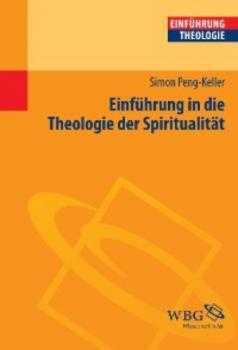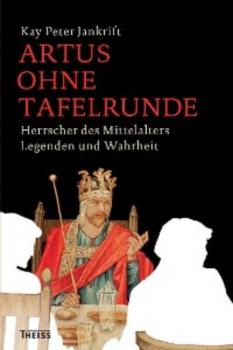ТОП просматриваемых книг сайта:















Автор
Все книги издательства АвторАннотация
Ausgehend von einer Analyse der politischen und sozialen Krise Deutschlands im Vormärz verfolgt Franz Lorenz Müller die Hauptstränge der mannigfachen revolutionären Veränderungsprozesse zwischen März 1848 und Juli 1849. Der Fokus richtet sich dabei nicht nur auf die politische Revolution des liberalen Bürgertums, die mit einer Fundamentalpolitisierung und Kommunikationsrevolution einherging, sondern ebenso auf die Forderungen und Aktionsformen von Bauern, Arbeitern, städtischen und ländlichen Unterschichten sowie von unterprivilegierten Schichten (Frauen, Juden). In einem abschließenden Kapitel erörtert er eingehend die Revolutionswende im Herbst 1848, die Verfassungsarbeit der Paulskirche, die Reichsverfassungskampagne sowie die Niederwerfung des pfälzischen und badischen Aufstands im Sommer 1849. Der Autor legt damit einen straffen, gut lesbaren und dennoch detailreichen und differenzierten Überblick zu den deutschen Revolutionen von 1848/49 vor.
Аннотация
Das Christentum mit seinem absoluten Wahrheitsanspruch, der sich auf das geoffenbarte Wort bezog, musste die Einheit von Glaube und Kirche fordern. Doch unterschiedliche Auslegungen sorgten von Anfang an für Spannungen in der Kirche und für das Entstehen von häretischen, von ›ketzerischen‹ Ansichten und Bewegungen. Jörg Oberste geht allen Ausformungen dieses Phänomens von den Anfängen der Kirche bis ins Spätmittelalter nach. Von den Arianern der Alten Kirche über die Katharer und Waldenser bis hin zu den Lollarden und Hussiten reicht dieser Überblick. Und er zeigt die verschiedenen Reaktionen der Kirche auf diese Umtriebe. In der Inquisition des Hochmittelalters ist ihr ein machtvolles Instrument erwachsen, das aber auch den Keim des Missbrauchs in sich trug.
Аннотация
In 135 Quellen werden die Grundprobleme und die Entwicklung der katholischen Reformbestrebungen vom 15. bis zum 17. Jahrhundert dokumentiert. Beginnend mit den starken Reformbestrebungen in vorreformatorischer Zeit widmet der Band sich dann der katholischen Auseinandersetzung mit der Reformation bis zum Ende des Konzils von Trient 1563, um sich in einem letzten Quellenblock mit der vollen Ausprägung der katholischen Reform und der Konfessionalisierung nach dem Konzil von Trient zu beschäftigen. So werden die Kontinuitäten innerhalb des Katholizismus deutlich wie auch die starken innovativen Impulse, welche die nach und nach durchgesetzte Reform gegeben hat.
Аннотация
Warum finden Revolutionen statt? Jahrzehnte der Forschung haben uns kaum weitergebracht, wenn es darum geht, wo, wann und in welchen Milieus sie vorkommen. In diesem bahnbrechenden Buch erläutert Eric Selbin, dass wir über die ökonomischen, politischen und sozialen Strukturen hinausblicken sollten – auf die Gedanken und Gefühle der Menschen. Wir sollten Geschichten von früheren Ungerechtigkeiten und Kämpfen, die den gegenwärtigen Auseinandersetzungen um eine bessere Zukunft ähneln, verstehen lernen, weil Menschen diese immer wieder untereinander austauschen und verarbeiten. Ausgehend von der Französischen Revolution und den deutschen Bauernkriegen über Russland, China, Kuba, Vietnam und Nicaragua zeigt Selbin anschaulich, dass es Mythos, Erinnerung und Nachahmung sind, die solche Geschichten entstehen und bestehen lassen. Das Buch identifiziert vier Typen von Revolutionsgeschichten, die mehr bewirken als nur zu beschreiben: Sie sind der Katalysator für die Veränderung der Welt.
Аннотация
Goethes Leben und Werk hatten schon immer Modellcharakter: Galt sein Leben bereits im 19. Jh. als vorbildlich, entwickelte sich die Germanistik als Wissenschaft nach den Vorgaben ihres lange Zeit wichtigsten Autors. Diese Einführung verknüpft die Frage nach den historischen Kontexten von Goethes Werk mit aktuellen Rezeptionsinteressen. Sie erläutert Goethes schriftstellerisches Selbstverständnis und seine literaturpolitischen Bestrebungen. Zentrale Themen wie die Auseinandersetzung mit der Französischen Revolution oder die Beschäftigung mit der Natur werden ebenso behandelt wie die breite Vielfalt der Gattungen und Genres. Dieses Spektrum wird mit Blick auf die variierenden Schreibweisen in den unterschiedlichen Werkphasen literaturgeschichtlich ergänzt. Im Mittelpunkt stehen repräsentative Einzelanalysen von »Prometheus«, »Götz von Berlichingen«, »Die Leiden des jungen Werther«, »Iphigenie auf Tauris«, »Wilhelm Meisters Lehrjahre«, »Die Wahlverwandtschaften« und »Faust«.
Аннотация
Bei der »Wiederkehr der Religion« in der Gegenwart spielen spirituelle Erfahrungen eine wichtige Rolle. Die Spiritualität ermöglicht einen ganzheitlichen Zugang zu religiösen Inhalten und erfüllt damit ein zentrales Sinnbedürfnis des heutigen Menschen. In der vorliegenden Einführung werden die theologischen Grundlagen der Spiritualität sowie eine Vielzahl von damit zusammenhängenden Problemen umfassend erläutert. Die klare didaktische Struktur und die Verbindung von systematischer und historischer Darstellung machen den Band zu einem wichtigen Arbeitsinstrument für das Studium und ermöglichen dem interessierten Leser einen fundierten Einblick in ein komplexes Themenfeld.
Аннотация
Dem Mittelalter auf der Spur War das Mittelalter wirklich finster? Ritter immer ritterlich? Waren Burgen uneinnehmbar und die Menschen damals einfältig-dumm? Um kaum eine historische Epoche ranken sich derart viele und widersprüchliche Mythen wie um das Mittelalter. Es gilt als Inbegriff einer finsteren Zeit voll abergläubischer Intoleranz und grausamer Gewalt: Verschwenderische Fürsten unterdrückten rücksichtslos das darbende Volk, an jeder Ecke standen Galgen, brannten Scheiterhaufen und schon ein fauler Zahn konnte den Tod bedeuten. Gleichzeitig wird das Reich der Ritter oft auch als ein harmonisches Zeitalter verklärt, in dem wohlgeordnete soziale Verhältnisse herrschten und der Mensch im Einklang mit Gott und der Natur ein sinnerfülltes, einfaches Leben führte. Doch wo liegt die historische Wahrheit? Dieses Buch greift die häufigsten Irrtümer über das Mittelalter auf und zeigt unterhaltsam und kurzweilig anhand aktueller wissenschaftlicher Erkenntnisse, dass damals vieles ganz anders war, als man es sich heute gemeinhin vorstellt.
Аннотация
Spurensuche am Tatort Geschichte: So umstritten Genetik in der modernen Medizin ist, so einstimmig begrüßen Historiker und Archäologen die neuen Methoden. Im vorliegenden Buch erzählt der Autor von sensationellen Ergebnissen gentechnologischer Analysen, berichtet aber auch von Hoffnungen und Spekulationen, von Sternstunden und Irrwegen einzelner Forscher auf ihrer ständigen Suche nach neuen Erkenntnissen.
Аннотация
Was ist dran an den Geschichten, die nicht nur zu Heldensagen, sondern immer wieder auch zu historischen Romanen und Hollywoodfilmen inspirierten? Beriet sich König Artus wirklich einmütig mit seinen Rittern an der Tafelrunde? Gilt Karl der Große zu Recht als Sachsenschlächter oder stimmt gar die These, dass es ihn nie gegeben hat? In diesem spannenden Buch nimmt der Autor die bekanntesten Herrscher des Mittelalters unter die Lupe und fördert dabei Überraschendes zu Tage: Er enthüllt zahlreiche vermeintliche Tatsachen als reine Erfindungen – und findet gleichzeitig für die märchenhaftesten Begebenheiten einen realen Kern.
Аннотация
Ein spannender Krimi über seltsame Geschäfte in der Halbhöhe, die Hintergründe des schönen Scheins und einen Kommissar mit durchaus menschlichen Problemen. Eine alte Frau wird tot in ihrem Wohnzimmersessel am Hölderlinplatz aufgefunden, ihr wertvolles journalistisches Archiv ist verschwunden. Wusste Gertrud Diebold zu viel? Welche Rolle spielt die Nachbarin Eleonore Schloms dabei? Und was hat das alles mit der Neubebauung des alten Messegeländes im Stuttgarter Nobelviertel Killesberg zu tun? Viele Fragen, auf die Kriminalhauptkommissar Reiner Emmerich und sein Team eine Antwort finden müssen. Schnell steht fest: Die üblichen Verdächtigen waren es nicht. Wer also dann? Dabei ist Emmerich gerade Strohwitwer, muss sich von Tiefkühlkost ernähren und droht, dem Trübsinn zu verfallen…










